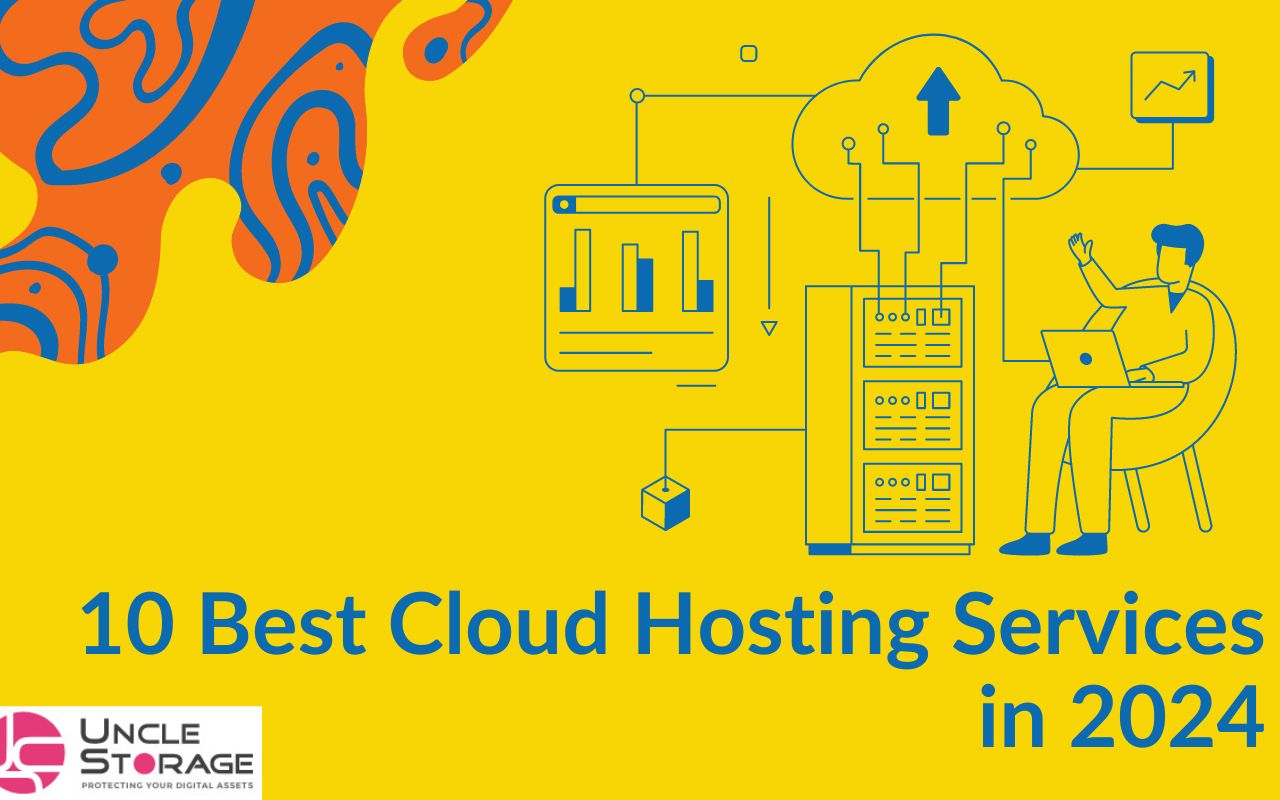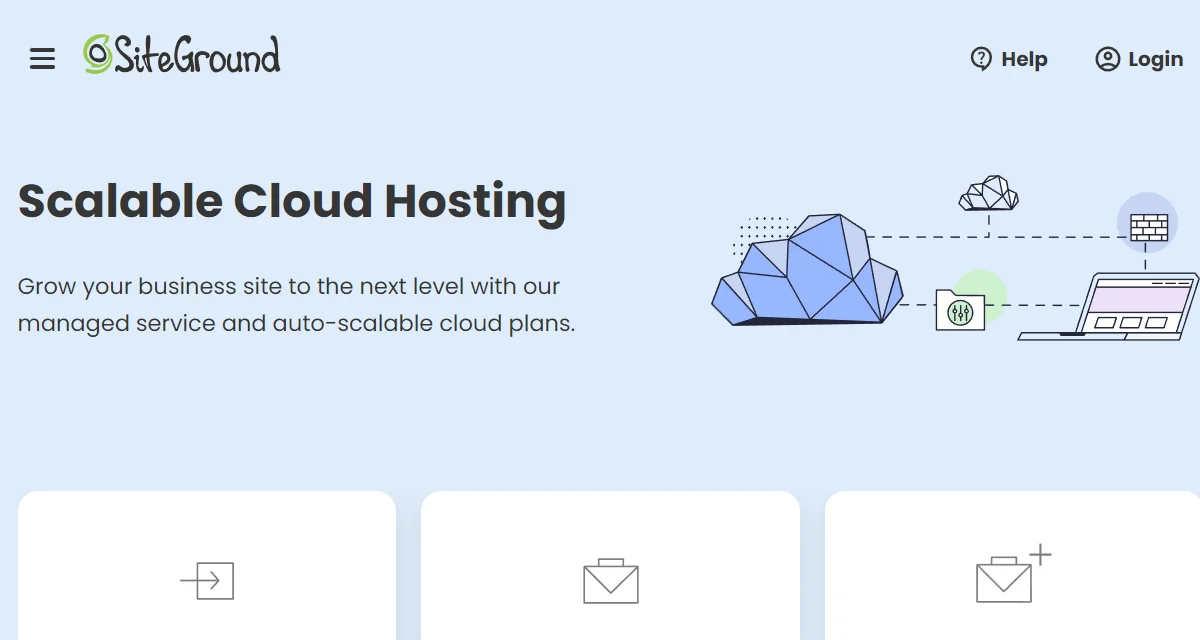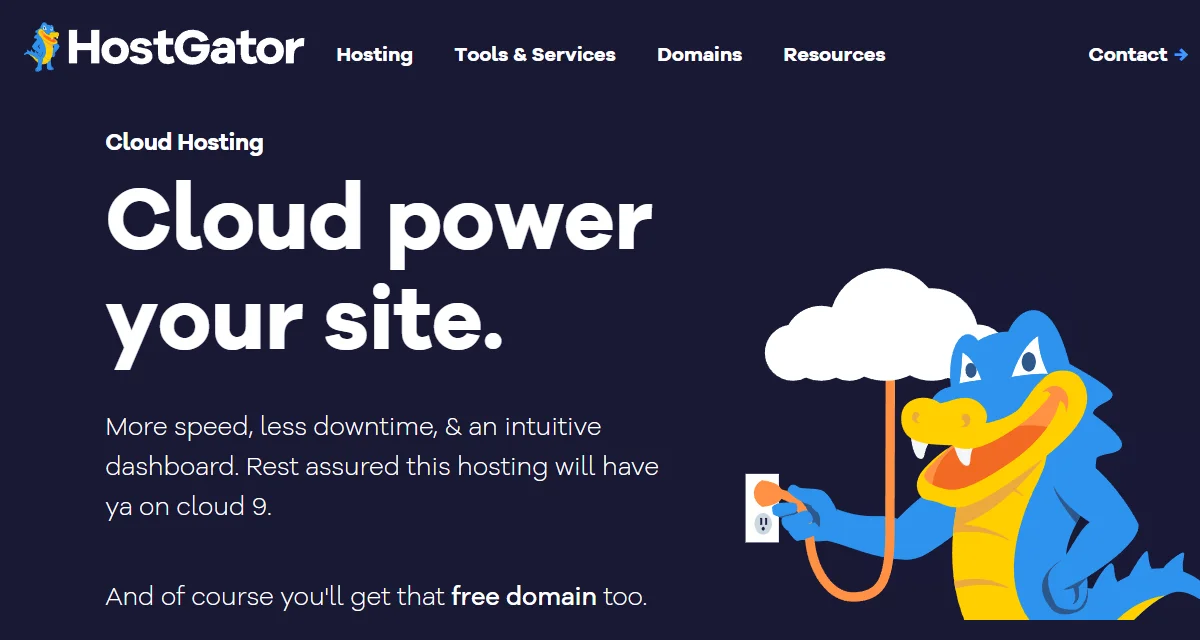The ideal web host in Singapore prioritizes swift speeds, features tailored for local businesses, and robust customer support. What’s more, a good website needs enough bandwidth, storage, a cheap domain, and easy management through a simple control panel. Price also plays a big role in choosing the best hosting. After rigorous testing from multiple test websites, Hostinger stands out as the top hosting option for Singapore websites for consistently meeting these standards.
This article highlights the premier options among cloud hosting services, which excel in providing reliable and scalable solutions. It narrows down the top 10 choices known for their exceptional performance, rich features, and value for money.
Cloud hosting services are pivotal for dynamic websites and applications requiring flexibility. They enable seamless handling of traffic fluctuations and resource adjustments. Furthermore, the article explores the fundamentals, benefits, and cost structure of cloud hosting. QUAPE emerges as the leading provider among the best cloud hosting services.

Top 10 Cloud Hosting Providers
1. QUAPE

QUAPE was established in 2006 and is best known for their affordable and quality hosting solutions. They offer plan which comes with 12 VCPU cores, 16 GB RAM, 150GB NVMe Disk storage, and provides upgradable bandwidth. They also include Centos Web pro for optimal performance.
What are the pros and cons of QUAPE’s cloud hosting?
There are 5 pros of using QUAPE’s cloud hosting:
Pros
- Affordable price
- Comes with 150GB NVMe Disk
- Daily free backups included
- Upgradble Bandwidth
- Unlimited Data Transfer
There are 2 cons of using QUAPE’s cloud hosting:
Cons
- No free domain provided
- Only 1 data center
2. DreamHost

DreamHost started in 1996 and is widely recognized for its reliable hosting services. Their cloud hosting 2 GB RAM server plan is priced at $12 per month. This package includes 1 vCPU core, 2GB RAM, 80GB SSD storage, and unmetered bandwidth. DreamHost also uses the open-source OpenStack cloud computing platform to provide a standard API that’s compatible with many tools.
What are the pros and cons of DreamHost’s cloud hosting?
There are 6 pros of using DreamHost’s cloud hosting:
Pros
- Pay-As-You-Go model (by-the-hour billing)
- Root access provided
- Supports Node.js
- Can install own OS of choice
- Takes less than 30 seconds to deploy server
- 100% uptime guarantee
There are 4 cons of using DreamHost’s cloud hosting:
Cons
- No automatic backups
- No free domain provided
- Only 1 data center
- No money back guarantee
3. IONOS

IONOS is one of the largest hosting companies and has 5 data centers in North America and Europe. Their cloud server XS plan starts from $4 per month. It offers 1 vCPU core, 512MB RAM, 30GB SSD storage, and unmetered bandwidth. Customers also benefit from a pay-as-you-go billing model where they are charged by the minute.
What are the pros and cons of IONOS’s cloud hosting?
There are 5 pros of using IONOS’s cloud hosting:
Pros
- Root access given
- Node.js supported
- Free wildcard SSL included
- Supports Linux and Windows OS
- Takes less than 1 minute to deploy server
There are 4 cons of using IONOS’s cloud hosting:
Cons
- No free backups
- No free domain provided
- Only offers managed cloud hosting
- No money back guarantee
4. GreenGeeks

GreenGeeks has been committed to eco-friendly cloud hosting since its establishment in 2008. The company plants a tree and pledges a 300% green energy match for each plan purchased. Their VPS cloud hosting MVM-2GB plan is priced at $39.95 per month. It comes with 4 vCPU cores, 2GB RAM, 50GB SSD storage, and a substantial 10TB bandwidth.
What are the pros and cons of GreenGeeks’s cloud hosting?
There are 3 pros of using GreenGeeks’s cloud hosting:
Pros
- Node.js supported
- Free backups included
- Offers a 30-day money back guarantee
There are 4 cons of using GreenGeeks’s cloud hosting:
Cons
- Most basic plan starts at $39.95/month
- No free domain provided
- Only offers managed cloud hosting
- Only supports AlmaLinux OS
5. SiteGround

SiteGround ensures fast and stable connectivity by using Google Cloud’s advanced infrastructure. They offer 11 data center locations worldwide. Their cloud hosting Jump Start plan costs $90 per month. It provides 4 vCPU cores, 8GB RAM, 40GB SSD storage, and 5TB bandwidth. Customers also have the option to enable dynamic scaling. This allows additional CPU and RAM to be automatically added to the server in times of traffic surges. Customers are billed only for the extra resources used.
What are the pros and cons of SiteGround’s cloud hosting?
There are 4 pros of using SiteGround’s cloud hosting:
Pros
- Daily free backups provided
- Free wildcard SSL included
- Unlimited free email accounts
- Offers a 14-day money back guarantee
There are 6 cons of using SiteGround’s cloud hosting:
Cons
- Most basic plan starts at $90/month
- No root access given
- No Node.js support
- No free domain provided
- Only offers managed cloud hosting
- Only supports Linux OS
6. Cloudways

Cloudways offers versatile managed cloud hosting solutions that is easy for anyone to use. They partner with 3 leading cloud providers so users simply choose the best fit for their needs. Their DO1GB plan starts from $11 per month. It provides 1 vCPU core, 1GB RAM, 25GB SSD storage, and 1TB bandwidth. Cloudways guarantees fast performance with an impressive network of over 65 data centers across Europe, America, Asia, and Australia. They also offer a 3-day free trial without needing a credit card.
What are the pros and cons of Cloudways’s cloud hosting?
There are 4 pros of using Cloudways’s cloud hosting:
Pros
- Hourly or monthly billing options
- Node.js supported
- Free automatic backups
- You can choose from Digital Ocean, Amazon Web Services, and Google Cloud Platform
There are 4 cons of using Cloudways’s cloud hosting:
Cons
- No free domain provided
- Only offers managed cloud hosting
- Only supports Linux Debian
- No money back guarantee
7. Kamatera

Kamatera is known for its powerful cloud infrastructure services and global presence. They currently have 14 data center locations that span North America, Europe, Asia, and the Middle East. Their most basic plan costs just $4 per month. It comes with 1 vCPU core, 1GB RAM, 20GB NVMe SSD storage, and 5TB bandwidth.
What are the pros and cons of Kamatera’s cloud hosting?
There are 7 pros of using Kamatera’s cloud hosting:
Pros
- Hourly or monthly billing options
- Comes with 20 GB NVMe SSD
- Root access given
- Node.js supported
- Offers managed (add $50) and unmanaged cloud hosting
- Option to install own OS
- 30-day free trial for plans worth up to $100 (credit card required)
There are 3 cons of using Kamatera’s cloud hosting:
Cons
- No free backups
- No free domain provided
- No money back guarantee
8. ScalaHosting

ScalaHosting promises scalability, high speed and security 24/7/365. Their cloud hosting Build #1 plan is priced at $29.95 per month. It offers 2 vCPU cores, 4GB RAM, 50GB NVMe SSD storage, and unmetered bandwidth. They also provide the SPanel control panel by default. Users can opt for cPanel for an additional $19.95.
What are the pros and cons of ScalaHosting’s cloud hosting?
There are 7 pros of using ScalaHosting’s cloud hosting:
Pros
- Comes with 50 GB NVMe SSD
- Node.js supported
- Daily free backups (offsite)
- Unlimited free email accounts
- Offers managed and unmanaged cloud hosting
- Supports Linux and Windows OS
- Anytime money-back guarantee
There are 4 cons of using ScalaHosting’s cloud hosting:
Cons
- You need to purchase a 3 year plan to get their lowest prices
- Most basic plan starts at $29.95/month
- No free domain provided
- Takes up to 10 minutes to deploy server
9. Hostwinds

Hostwinds has a reputation for high quality cloud hosting and customer support. Their most basic cloud hosting plan is priced at $4.99 per month. It comes with 1 vCPU core, 1GB RAM, 30GB SSD storage, and 1TB bandwidth. Hostwinds also has a 99.9999% uptime guarantee to ensure minimal disruptions for hosted sites.
What are the pros and cons of Hostwinds’s cloud hosting?
There are 6 pros of using Hostwinds’s cloud hosting:
Pros
- Pay-As-You-Go model (by-the-hour billing)
- Root access given
- Node.js supported
- Nightly free backups
- Offers managed and unmanaged cloud hosting
- Supports Linux and Windows OS
There are 4 cons of using Hostwinds’s cloud hosting:
Cons
- No free domain provided
- No free SSL included
- No free CDN included
- No money back guarantee
10. HostGator

HostGator is one of the industry’s leading cloud web hosting providers. Their Hatchling cloud hosting plan is priced at $4.95 per month. It includes 2 vCPU cores, 2GB RAM, and offers both unmetered storage and bandwidth. Customers also benefit from free backups, a complimentary domain, free SSL certificates, and complimentary email accounts.
What are the pros and cons of HostGator’s cloud hosting?
There are 4 pros of using HostGator’s cloud hosting:
Pros
- Affordable price of $4.95/month
- 2 data centers in the US
- 99.9% uptime guarantee
- Offers a 30-day money back guarantee
There are 6 cons of using HostGator’s cloud hosting:
Cons
- You need to purchase a 3 year plan to get their lowest prices
- No root access given
- No Node.js support
- No dedicated IP provided (only available in their highest-tier plan)
- Only offers managed cloud hosting
- Only supports Linux OS
What Is Cloud Hosting?
Cloud hosting is a type of web hosting that uses a network of interconnected virtual servers with assigned resources. Such resources include CPU, RAM, storage, and bandwidth. These hosting resources are drawn from a cluster of multiple physical servers which collectively form what is commonly known as the “cloud.”
This is in contrast to other types of web hosting that rely on a single physical server, like Shared Hosting. Cloud hosting comes in both managed and unmanaged forms.
What is managed cloud hosting?
Managed cloud hosting is a cloud hosting service where the provider handles server management tasks for the user. Common tasks include setup, monitoring, security, and maintenance. Users receive round-the-clock support with this type of managed hosting. This means they can concentrate on building their websites or applications without worrying about the technicalities of server management.
How Does Cloud Hosting Work?
Cloud hosting works by using virtualization software like hypervisors to divide physical servers into multiple virtual servers. Each virtual server behaves as a distinct machine and is equipped with its own operating system and adjustable resources (CPU, RAM, storage, and bandwidth). The activities on one virtual server do not impact other virtual servers.
What To Expect From The Best Cloud Hosting?
The best cloud hosting offers 4 benefits to expect. Firstly, it provides high availability (uptime). Cloud hosting keeps websites running by pulling resources from other servers when one server fails. Secondly, it allows high scalability. You adjust resources like CPU, RAM, and storage on-demand without stopping or shutting down the server. Thirdly, most providers have flexible pricing. You only pay for what you use with the “pay-as-you-go” model. Lastly, it’s beginner-friendly. In managed cloud hosting, users easily manage their servers using GUI (graphic user interface) tools like cPanel or a custom control panel.
How Much Does Cloud Hosting Cost??
Cloud hosting costs range from as low as $4 per month to $90 per month for entry-level plans. These plans include features such as NVMe SSD, unmetered bandwidth, root access, a firewall, and free daily backups. Plans on the cheaper end of the spectrum come with certain restrictions. The billing frequency of your subscription also affects how much cloud hosting costs.
What are the limitations of cheap cloud hosting?
Cheap cloud hosting refers to plans priced below $5 per month. The limitations of cheap cloud hosting are that they offer a restricted amount of CPU (below 2 cores), RAM (below 1 GB), and limited storage capacity (20-30 GB). Such limits hinder the performance of a website or app. These plans also do not include backup services.
What are Pay-As-You-Go cloud hosting plans?
Pay-as-you-go (PAYG) cloud hosting plans are cloud hosting services where users are billed solely for the resources consumed by their cloud servers. These plans charge users by the minute or hour instead of a fixed monthly fee. This means they only pay for the actual server usage.
What Is The Difference Between PaaS And IaaS Cloud Hosting?
The main difference between platform-as-a-service (PaaS) and infrastructure-as-a-service (IaaS) cloud hosting lies in how much of the cloud server the user is responsible for.
PaaS cloud hosting users only manage their website and data. The provider handles both the software and hardware of the cloud server. Examples of PaaS providers are Cloudways, Hostinger, and SiteGround.
IaaS cloud hosting users take care of more than just their website and data. They also manage the runtime, OS, and middleware of the cloud server. This gives them full control. Popular IaaS providers include DigitalOcean, Amazon Web Services, and Microsoft Azure Cloud.
Is Cloud Hosting Secure?
Yes, cloud hosting is secure for 3 reasons. Firstly, they are less vulnerable to hacking because of isolation. Each site or app operates in its separate space and this prevents one compromised site from affecting others. Secondly, cloud hosting is less susceptible to DDoS attacks thanks to load balancers. Load balancers are responsible for distributing incoming traffic evenly so it doesn’t overwhelm a single server. Lastly, virtualization creates a protective layer between the server and potential threats. This ensures that your website or app is shielded from malicious third parties.
Can I Choose The Data Center Location For Cloud Hosting?
Yes, you can choose the data center location for cloud hosting during the sign-up process. You can also move your active cloud server to a different data center location using the cloud host’s control panel or by contacting technical support if you want to change it later.
What Is Root Access In Cloud Hosting?
Root access is the permission that gives a user the highest level of control over their cloud server. With root access, users can change their server’s settings, including the operating system, automation, scripting, firewall, and access control.
What Is Linux Cloud Hosting?
Linux cloud hosting is a service where servers are installed with a Linux-based operating system, such as Debian, Ubuntu, or CentOS. This type of cloud hosting supports the use of cPanel, the LAMP stack, and the Exim mail server.
What Is Windows Cloud Hosting?
Windows cloud hosting is a service where servers come with a Windows-based operating system, such as Windows Server Standard, Windows Server Datacenter, or Windows Server Essentials. This cloud hosting type supports tools such as Plesk, the IIS web server, and the MailEnable mail server. Users are required to pay an extra fee for a Windows license.
What Is The Difference Between Cloud And VPS Hosting?
The key difference between cloud hosting and VPS hosting is resource scalability in terms of CPU, RAM, storage and bandwidth.
Cloud hosting draws resources from multiple physical servers. This allows for on-demand allocation. The limit to this allocation is determined by the number of physical servers the provider owns.
Meanwhile, VPS hosting confines resources to a single physical server which is partitioned into multiple virtual servers. A user will need to transition to a larger VPS or change hosting providers to gain additional resources once that physical server exhausts its resources.
See our best VPS hosting article to learn more.
Is Cloud Hosting Faster Than Shared Hosting?
Yes, cloud hosting is faster than shared hosting. Shared hosting shares resources across all hosted websites while cloud hosting allocates dedicated resources (CPU, RAM, bandwidth) to each website. This results in quicker performance and faster load times for sites hosted on cloud servers. See our best shared hosting writeup to learn more.
Which Is The Best Cloud Hosting Provider?
The best cloud hosting providers give great performance and have lots of features like CPU, storage, and bandwidth. They also offer good service at a fair price.

